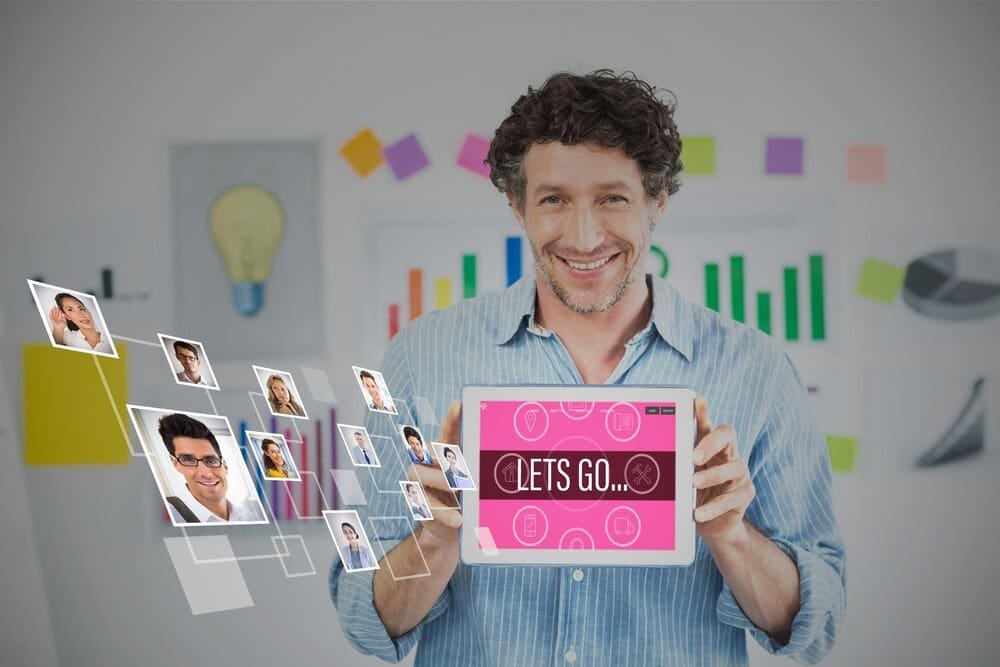The endless scroll through social media has become a modern ritual, but for millions, it’s a source of profound psychological distress. The constant exposure to curated images of success, beauty, and happiness on platforms like Instagram, TikTok, and Facebook is fueling a silent epidemic of social comparison, directly contributing to rising rates of anxiety, depression, and plummeting self-esteem. This phenomenon traps users in a cycle where they measure their own messy, real-life circumstances against the polished highlight reels of others, an unfair contest that erodes mental well-being and leaves them feeling inadequate, isolated, and perpetually behind.
The Psychology of the Scroll: Why We Can’t Help But Compare
This urge to compare ourselves to others is not a new phenomenon born from the internet. It is a fundamental human drive first detailed by social psychologist Leon Festinger in his 1954 Social Comparison Theory. Festinger proposed that we have an innate need to evaluate our own opinions and abilities, and we do so by comparing ourselves to other people.
This comparison typically falls into two categories: upward social comparison, where we look to people we perceive as being better than us, and downward social comparison, where we look to those we see as worse off. While upward comparison can sometimes be inspiring, it is often a source of envy and low self-worth. Downward comparison, conversely, can boost our ego but can also lead to feelings of scorn or unfair superiority.
Social media has taken this natural human tendency and amplified it to an unprecedented degree. Unlike in the past, where our comparison group was limited to our immediate community—neighbors, colleagues, or classmates—we now have access to a global, seemingly infinite pool of people to compare ourselves against. Algorithms are designed to show us the most engaging, most popular, and often most idealized content, creating a skewed perception of reality.
The Highlight Reel vs. Your Behind-the-Scenes
A critical step in breaking free from the comparison trap is recognizing the fundamental dishonesty of the exchange. You are comparing your full, unedited life—complete with its struggles, mundane moments, and insecurities—to someone else’s carefully constructed and edited highlight reel.
Think of a social media profile as a movie trailer. The trailer shows only the most exciting, dramatic, and flattering moments to entice an audience. It deliberately omits the boring scenes, the mistakes, and the long, arduous process of creating the film. Similarly, a person’s feed is a performance of their best self, showcasing lavish vacations, career achievements, perfect relationships, and flawless selfies, all while hiding the debt, the arguments, the self-doubt, and the messy reality of daily life.
This disparity creates an impossible standard. We internalize these filtered, picture-perfect lives as the norm, leading us to question why our own lives don’t measure up. It is a rigged game from the start, and understanding this is the first defense against its negative effects.
The Toll on Your Mental Well-being
The persistent, low-grade stress of social comparison takes a significant toll on mental health. The effects are not just fleeting moments of envy; they can develop into serious psychological conditions over time.
Anxiety and Depression
Constantly feeling like you are not good enough can be a direct pathway to anxiety and depression. Research from numerous institutions has linked high levels of social media use, particularly passive consumption (scrolling without interacting), to increased symptoms of both disorders. The feeling of being perpetually behind in life can foster a sense of hopelessness, a core component of depression.
Body Image and Self-Esteem
For many, especially young women and men, social media is a minefield for body image issues. The prevalence of digitally altered photos, filters, and influencers promoting unrealistic body standards has created a culture where natural, diverse bodies are seen as flawed. This can lead to disordered eating, body dysmorphia, and a deep-seated dissatisfaction with one’s own appearance.
The Fear of Missing Out (FOMO)
FOMO is a unique form of social anxiety characterized by the feeling that you are missing out on rewarding experiences that others are having. Seeing an endless stream of parties, travel, and social gatherings can trigger intense anxiety that your own life is not as exciting or fulfilling. This can compel people to say “yes” to things they don’t want to do or feel deep regret for simply staying home.
Loneliness and Disconnection
Paradoxically, a tool designed for connection can often make us feel more alone. The superficial nature of online interactions, such as “likes” and brief comments, cannot replace the depth and nuance of genuine, face-to-face human connection. Spending more time in the digital world can mean spending less time cultivating the real-world relationships that truly sustain our mental health.
Actionable Strategies for a Healthier Relationship with Social Media
While the problem is pervasive, you are not powerless. You can take concrete steps to mitigate the harm of social comparison and reclaim your mental peace. This involves shifting from being a passive consumer to an intentional and mindful user.
Step 1: Curate Your Digital Environment
Your social media feed is your digital home; you have the right to decide who and what you let in. Be ruthless in curating your environment. If an account consistently makes you feel bad about yourself—whether it’s an influencer, a celebrity, or even a friend—use the mute or unfollow button. You are not obligated to follow anyone, and protecting your mental health is paramount.
Conversely, actively seek out and follow accounts that inspire, educate, or make you feel good. Follow artists, writers, scientists, hobbyists, and people who share authentic, relatable content. Transforming your feed from a source of comparison into a source of inspiration is a powerful first step.
Step 2: Practice Mindful Consumption
Avoid mindless, passive scrolling. Before you open an app, ask yourself: “Why am I going on social media right now?” Are you bored, lonely, or looking for a specific piece of information? Being aware of your motivation can help you use the platform more intentionally.
While you are scrolling, periodically check in with your body and your emotions. Ask yourself: “How is this content making me feel?” If you notice a spike in anxiety, a pang of envy, or a dip in your mood, that is your cue to log off. This practice builds self-awareness and helps you recognize your personal triggers.
Step 3: Set Firm Boundaries
Technology companies design their platforms to be addictive. You must create your own guardrails. Use the built-in app timers on your smartphone to set a daily limit for social media use. Once your time is up, the app will notify you, breaking the spell of the endless scroll.
Designate specific times or places as phone-free zones. For example, make a rule of no phones during meals, in the bedroom, or for the first hour after you wake up. Consider scheduling a regular “digital detox”—a full day or weekend off social media to allow your mind to reset and reconnect with the world around you.
Step 4: Cultivate Gratitude and Self-Compassion
Comparison thrives on a scarcity mindset, focusing on what you lack. The antidote is gratitude, which shifts your focus to what you already have. Start a simple gratitude practice, such as writing down three things you are thankful for each day. This simple act can rewire your brain to notice the positive aspects of your own life rather than the perceived positives in others’ lives.
Pair this with self-compassion. When you find yourself falling into the comparison trap, treat yourself with the same kindness you would offer a friend in the same situation. Acknowledge the feeling without judgment and gently remind yourself of your own unique strengths and journey.
Step 5: Focus on Your Own Path
Remember the old adage: “Comparison is the thief of joy.” Your life is not a race against anyone else. The only person you should be comparing yourself to is the person you were yesterday. Focus on your own personal goals, values, and progress, no matter how small.
Celebrate your own wins. Did you finish a difficult project at work? Did you have a meaningful conversation with a loved one? Did you simply make it through a tough day? Acknowledge and honor your own efforts and achievements. This builds an internal sense of validation that is far more resilient than the fleeting validation of external “likes.”
Step 6: Prioritize Real-World Connection
No amount of online interaction can replace the psychological benefits of real-world connection. Make a conscious effort to invest time and energy in your offline relationships. Call a friend instead of sending a text. Schedule a coffee date or a walk in the park. Meaningful, face-to-face interactions provide a sense of belonging and support that social media can only mimic.
Engaging in hobbies and activities in your community also helps ground you in your own life. Joining a sports team, a book club, or a volunteer group builds skills, fosters connections, and creates a rich, fulfilling life that no social media feed can truly capture.
Ultimately, breaking free from the grip of social media comparison is a conscious practice of reclaiming your focus. It involves recognizing the artificial nature of the digital world, curating your influences, and turning your attention back to the tangible, meaningful, and authentic reality of your own life. By doing so, you can transform your relationship with technology from one that depletes you to one that serves you, allowing you to appreciate your own unique journey, one offline moment at a time.








